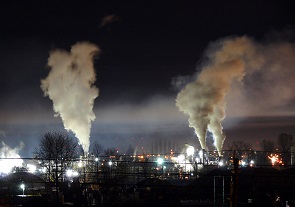Will the corona pandemic speed up the energy transition? The question is much debated. Those who would like to accelerate the transition seem to have the upper hand, if we can judge by the headlines of the news.

Fine particulate matter and corona pandemic
We can add a new argument to this discussion. For there is evidence that air pollution, in particular fine particulate matter, plays a role in the seriousness of the corona pandemic. We don’t know the details of the mechanism yet. Fine particulate matter might ease transport by air of the virus. Or people living in polluted areas might be more susceptible to viral contagion because of their overburdened lungs; no matter how the virus has come there. Like smokers’ enhanced susceptibility.
Fine particulate matter consists of microscopic particles, imperceptible to the human eye. After inhalation they may cause health problems. They easily migrate from the lungs into the body, and can do much harm there in the course of time. Fine particulate matter can be of natural origin, like sand or pollen. But the major sources of fine particulate matter are industrial processes and burning wood and fossil fuels. Often, the kind of particulate matter produced by these processes is more harmful.
Speed up the energy transition
We should therefore clean up the air fast in order to contain the corona pandemic. Less fine particulate matter in the air. And that means: less fossil energy use. Energy transition, in other words. We could never see the need for it so clearly.
Interesting? Then also read:
Perspective on renewable energy rapidly changing
Energy storage, its role in the transition
The energy transition is a digital transition too
